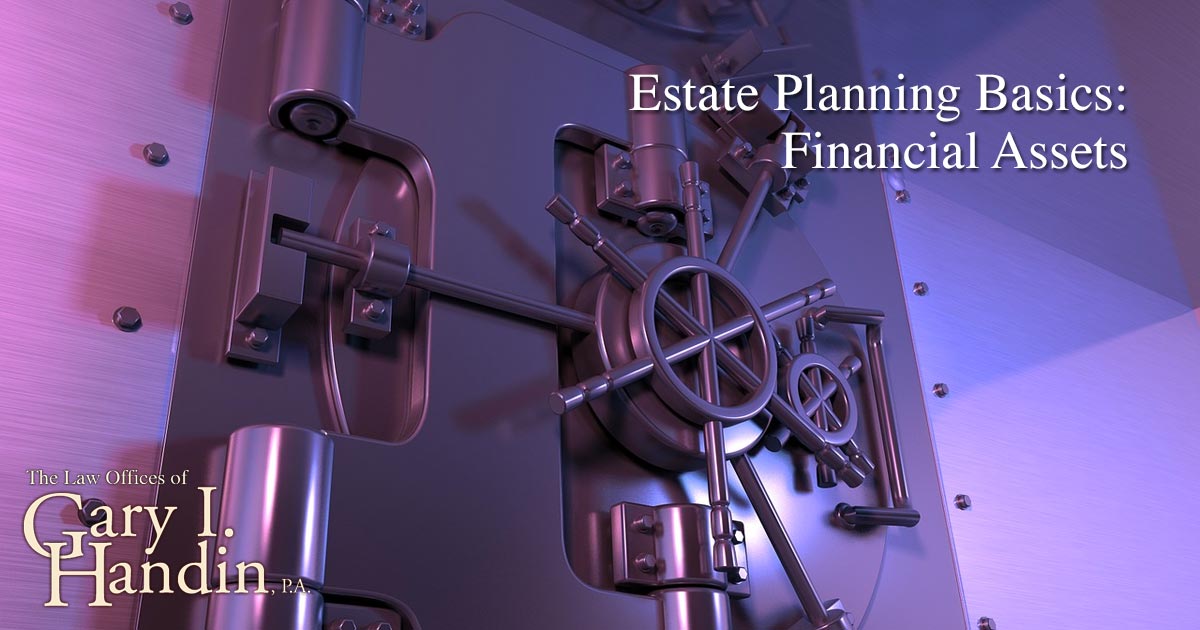
When it comes to planning your estate and the distribution of your assets, it’s essential to take all necessary precautions to make sure your wishes are recorded and beneficiaries receive their due in the most advantageous way as is possible. While many might think that estate planning is a necessity only in your elder years, it is never too early to plan the distribution of your financial assets in the event of your passing, no matter what your level of income might be.
Here are the key basics you need to know in order to effectively create an estate plan for your assets, great or small.
Identifying Your Assets
The first step in estate planning is to identify your current assets and their total value. It is not uncommon for individuals to think they lack sufficient assets to begin the estate planning process. However, no matter what stage in life you are in, it might surprise you just how many tangible and intangible assets you currently own.
Examples of tangible estate assets include cars, boats, coins, real estate, and homes. However, for the purposes of this guide, we will focus on intangible financial assets. The most common financial assets are ones like savings accounts, checking accounts, stocks, mutual funds, bonds, and certificates of deposit.
Protecting Your Assets
After you’ve identified and evaluated your financial assets, you need to consider the best approach to safeguard your loved ones by creating a will that protects your assets for your beneficiaries. To prevent your assets from being argued over and protect your desired beneficiaries, you must establish this official document as part of your estate plan for the good of all involved.
If you are a parent, upon consulting with your partner or spouse, your will should detail your exact wishes for the care of and distribution of assets to your children. You must not assume, that in the event of your death, your family or a court’s decision would align with your wishes. When you create your will, you must spell out a guardian, if applicable, and a second individual as a backup in the event of an emergency.
Primary Directives
Estate planning is essential to ensure your assets are distributed according to your wishes after you’ve gone. However, no plan would be complete without primary directives that could prove necessary before that day comes. Perhaps you’ve already had a medical care directive drawn out, detailing your wishes for your medical care if you are not capable of doing so yourself.
Likewise, if you are medically unfit to see to your financial affairs, a durable financial power of attorney will allow your designated surrogate to see to them. That designated individual as detailed in the durable financial power of attorney will have the power to act in your place in financial and legal scenarios when you are unable to do so. These actions include everything from paying your taxes to overseeing your assets.
If designating that much authority to one person is of concern, you also have the option to go with a limited power of attorney, which gives power to the designated individual within the limits you specify. You must take great care when choosing the individuals you hand power of attorney over to, as you are literally entrusting those people with your life and livelihood.
A trust is another possibility to consider. In it, you can allot certain portions of your estate towards particular things while you are still alive. In the event you become sick or incapacitated, your trustee will take the reins. After you’re gone, the assets in your trust would then be distributed to your designated beneficiaries, foregoing the probate process that would otherwise likely be responsible for disbursing the property.
Tax Considerations
Much of the time, individuals approach estate planning as a way to lower inheritance and estate taxation. The good news is, due to recent legislation in 2018, new laws have essentially done away with state estate tax and virtually removed federal estate tax. In fact, to be eligible for estate tax, you must have an estate valued at over 10 million dollars.
Seek The Advice Of A Professional
Whether your estate is large or small, consulting with an attorney will ensure you’re planning your directives properly and in the way most advantageous to your designated beneficiaries. An estate planning attorney can also assist you if your situation changes in the future and you need to alter your estate plan.
With nearly 50 years of legal experience, The Law Offices of Gary I. Handin, P.A. are here to help you with your estate planning journey. Don’t leave things to chance when it comes to planning your estate and end of life wishes for the designation of your financial assets. Give us a call today at 1-877-815-4560 to request information or schedule your consultation.





